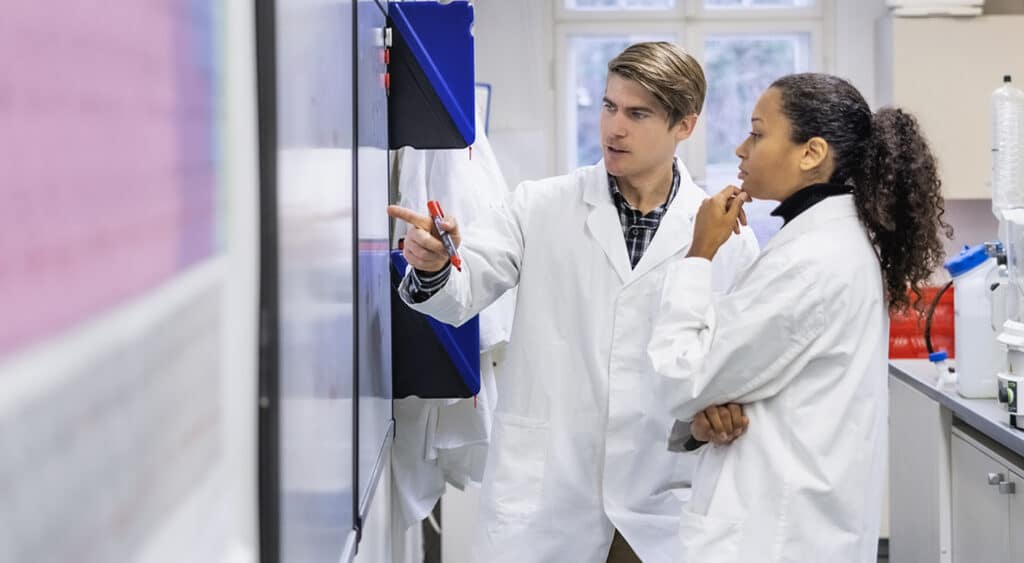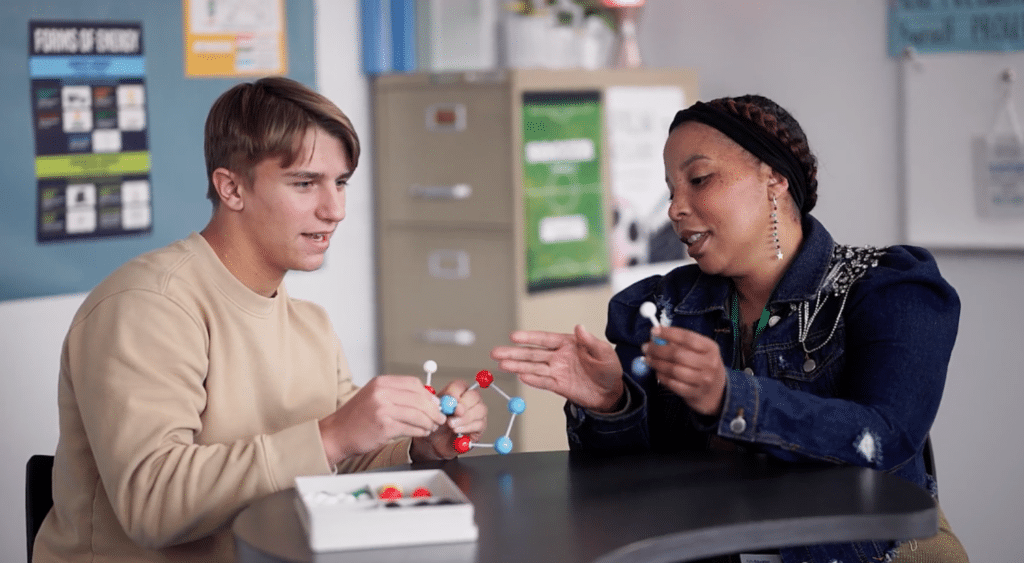The Importance of Versatile Skills in Science

Are you a new graduate looking for your first job? Or an experienced scientist looking to advance your career?
If you’ve answered, “Yes!” to either of these questions, it’s helpful to know what some of the most important trends are in science for 2022 and beyond. Here’s what you need to know.
Experience in multiple areas
In general, employers are seeking well-rounded candidates who possess both traditional scientific skills and versatile skills.
According to research published in the McKinsey Global Institute report titled “Skill Shift — Automation and the Future of the Workforce,” as organizations deploy automation, AI, robotics, and advanced analytics, the time we spend using technical skills at work will increase by 50 percent over the next few years. As such, there’s a strong demand for scientists with IT skills across all disciplines.
To illustrate: According to Philip Guo in his article “Why Scientists and Engineers Must Learn Programming” for Communications of the ACM, having programming skills allows you to work 10 times faster because you can automate time-consuming manual tasks. In addition, it enables you to better communicate your needs to any programmers who are creating programs for your lab.
Especially in the pharmaceutical, medical device, and biotech fields, there’s a preference for candidates with experience in virtual science and laboratory robotics who know how to utilize technology for life sciences applications. And of course, candidates are expected to be well-versed in gas chromatography and mass spectrometry.
In biopharma, quality process experience and experience in any type of cell handling are a plus. With the increased focus on personalized therapies, there’s exponential growth in the area of CAR T-cell therapy, as there will be a strong demand for immunotherapy scientists for the next two years. Furthermore, DNA-related work experience such as DNA research and editing are highly sought after.
How to gain experience
Since most employers require demonstrable hands-on experience, it’s important to assess what skills you need to learn or hone to enhance your marketability. Once you’ve done that, look for ways to acquire experience.
For example, you can use undergraduate research opportunities and research projects to your advantage. In addition, you can look for internships, since many companies offer summer internship programs.
Finally, you can leverage temporary and contract work to simultaneously learn new skills, expand your network, and earn a salary. Note that many scientists select positions based on the specific skills and experience they’ll be able to acquire.
For example, new graduates might want to work at a company where they’ll have the opportunity to work with cutting-edge equipment, or more experienced scientists might look for projects that are spearheaded by prominent professionals in their field.
While you work on honing your skills and gaining more experience, keep in mind that it’s important to stay abreast of developments in your industry. That will allow you to stay informed about the qualifications employers are looking for — now and in the future.
View Related: Article Job searching
You might like
Do substitute teachers get health benefits?
3 minute read
What a substitute teacher does.
4 minute read
Do substitute teachers get health benefits?
3 minute read
What a substitute teacher does.
4 minute read
Find your next job
Discover thousands of temporary, full-time, and remote jobs for beginning and experienced job seekers.


